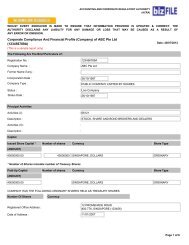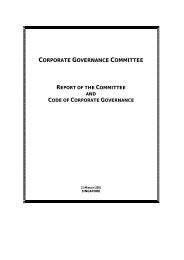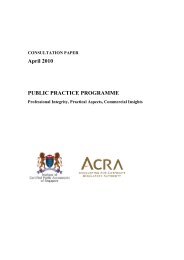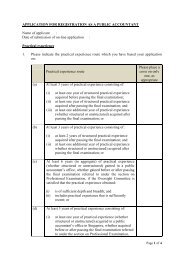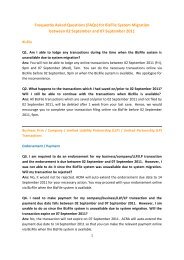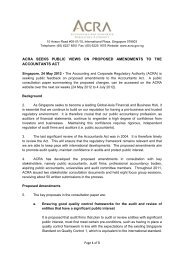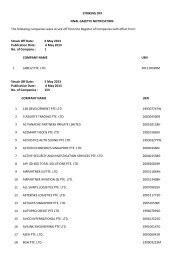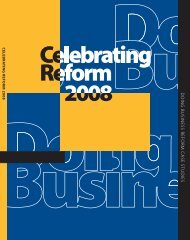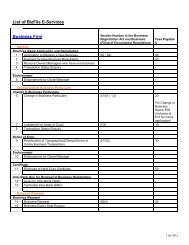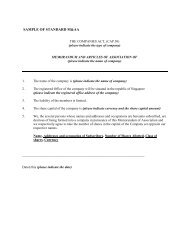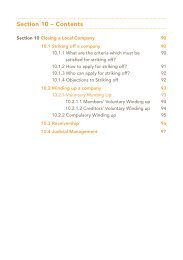Exposure Draft - ACRA
Exposure Draft - ACRA
Exposure Draft - ACRA
You also want an ePaper? Increase the reach of your titles
YUMPU automatically turns print PDFs into web optimized ePapers that Google loves.
CODE OF PROFESSIONAL CONDUCT AND ETHICS FOR PUBLIC ACCOUNTANTS<br />
Section 210<br />
Professional Appointment<br />
Client Acceptance<br />
210.1 Before accepting a new client relationship, a public accountant should consider whether<br />
acceptance would create any threats to compliance with the fundamental principles.<br />
Potential threats to integrity or professional behavior may be created from, for example,<br />
questionable issues associated with the client (its owners, management and activities).<br />
210.2 Client issues that, if known, could threaten compliance with the fundamental principles<br />
include, for example, client involvement in illegal activities (such as money<br />
laundering), dishonesty or questionable financial reporting practices.<br />
210.3 The significance of any threats should be evaluated. If identified threats are other than<br />
clearly insignificant, safeguards should be considered and applied as necessary to<br />
eliminate them or reduce them to an acceptable level.<br />
210.4 Appropriate safeguards may include obtaining knowledge and understanding of the<br />
client, its owners, managers and those responsible for its governance and business<br />
activities, or securing the client‘s commitment to improve corporate governance<br />
practices or internal controls.<br />
210.5 Where it is not possible to reduce the threats to an acceptable level, a public accountant<br />
should decline to enter into the client relationship.<br />
210.6 Acceptance decisions should be periodically reviewed for recurring client engagements.<br />
Engagement Acceptance<br />
210.7 A public accountant should agree to provide only those services that the public<br />
accountant is competent to perform. Before accepting a specific client engagement, a<br />
public accountant should consider whether acceptance would create any threats to<br />
compliance with the fundamental principles. For example, a self-interest threat to<br />
professional competence and due care is created if the engagement team does not<br />
possess, or cannot acquire, the competencies necessary to properly carry out the<br />
engagement.<br />
210.8 A public accountant should evaluate the significance of identified threats and, if they<br />
are other than clearly insignificant, safeguards should be applied as necessary to<br />
eliminate them or reduce them to an acceptable level. Such safeguards may include:<br />
(a) Acquiring an appropriate understanding of the nature of the client‘s business, the<br />
complexity of its operations, the specific requirements of the engagement and the<br />
purpose, nature and scope of the work to be performed.<br />
(b) Acquiring knowledge of relevant industries or subject matters.<br />
21



